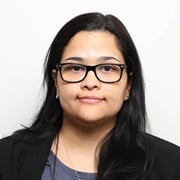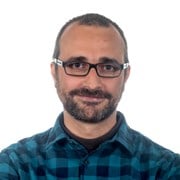The "Wave Energy Rig Testing Workshop" focused on how rig testing has significant potential to accelerate the development of the wave energy sector by bridging the gap between research and deployment. The day consisted of four technical sessions, with presentations from international and Italian experts from both academia and industry, followed by a tour of VGA’s new test rig facility in Deruta, to view the two rigs that have been developed as part of the IMPACT project.
This was the project’s second technical workshop; the first was a joint side-event with fellow European wave energy project VALID at ICOE-OEE in 2022, entitled “Is hybrid testing the key to accelerating wave energy development?”.
“The second technical workshop gathered a good mix of participants from different countries in Europe, and we received lots of positive feedback welcoming the diversity of presentations and discussions during the event,” said Paula B. Garcia Rosa (SINTEF Energy Research), who led the organisation of the workshop together with Giacomo Alessandri, with support from Emanuela Zafarana (VGA) and Jessica Scott (SINTEF Energy Research).
“Our main motivation for the first part was to facilitate a discussion on how rig testing can help accelerate the development of the wave energy sector. In SINTEF Energy Research, our wave energy expertise includes control technology, electrical models and grid integration, which are very relevant to the rig testing context. So it was a real pleasure to co-organise this event, and collaborate on the development of an innovative testing approach during the project! We are very grateful to everyone that joined us in Perugia and made this discussion possible! I’d also like to take the opportunity to express my sincere thanks to VGA team for the partnership!” she continued.

Wave energy presentations and discussions
The first part of the workshop took place at the Hotel Giò in Italy. Giacomo and Paula opened with a warm welcome, after which, the first session started, entitled “Advancing academic research while bringing benefits to the sector”. Despite many wave energy converters (WECs) reaching high levels of technical development, they rarely reach the commercialisation stage. This session argued that research at earlier stages can increase the chances of success. It featured presentations from John Ringwood (Maynooth University), Mauro Bonfanti (Politecnico di Torino) and Giacomo Moretti (University of Trento), and was chaired by Jimmy Murphy (MaREI, University College Cork) from IMPACT.
Following a quick coffee break, the workshop continued with the second session: “Wave energy bankability: how to reduce risks and gain confidence from investors”, which discussed how credibility, testing and certifications can build the confidence of investors and regulatory authorities, and convince them to invest more in emerging wave energy technologies. The session featured presentations from Claudio Bittencourt Ferreira (DNV), Rémi Gruet (Ocean Energy Europe), Julia Fernandez Chozas (Julia F. Chozas, Consulting Engineer) and Pablo Ruiz-Minguela (TECNALIA), and was chaired by Mairead Atcheson Cruz (Yavin Four Consultants) from IMPACT.
While the first two sessions focused on the theory and potential of wave energy technologies, the third session, “Testing in wave energy – the current state of the art”, examined some of the activities currently taking place within the sector. The session featured presentations from one developing body and three companies who are at the forefront of WEC and wave energy technology development: Matthew Holland (Wave Energy Scotland), Elie Al Shami (Carnegie Clean Energy), Kristian Glejbøl (Wavepiston) and Christopher Ridgewell (AW-Energy). The session was chaired by José Miguel Rodrigues (SINTEF Ocean) from IMPACT.
The first part of the workshop concluded with its fourth and final session, entitled “Knowledge transfer from other industries”, which explored how the expertise gained from four different disciplines that have traditionally used rig testing: undersea cables, microchips, aerospace and space, can be applied in wave energy. The session featured presentations from Naiquan Ye (SINTEF Ocean), Bruno Lorenzi (GemaTEG), Luciano Pizzoni (Umbragroup) and Francesco Lumaca (Thales Alenia Space), and was chaired by Marco Chiarappa (VGA) from IMPACT.

Visit to see the IMPACT rigs
Following the fourth session of the workshop, participants were taken for a tour of VGA’s testing facilities in Deruta.
IMPACT has been working to develop and demonstrate a next-generation testing approach for wave energy converters through a dual hardware-in-the-loop (DHIL) testing platform comprising of two rigs: a drivetrain test rig and a structural components test rig, wherein the data gathered from each rig informs the next round of tests for both of them.
The drivetrain test rig was originally constructed as part of the now concluded, EU-funded IMAGINE project, but has been further upgraded throughout IMPACT so that it can test either linear or rotary Power Take Offs (PTOs) for different types of wave energy converters (WECs), and simulate their interaction with the electrical grid. The hosts were able to see a standard drivetrain installed on the bench structure, to demonstrate the rig capabilities.
The structural components test rig was entirely designed and constructed as part of IMPACT to target components that are constantly subject to mechanical loads or any mechanical interfaces connecting key parts of a device. As part of the project’s demonstration campaign, Carnegie Clean Energy supplied the belt (used both as the mooring and power transmission system of their CETO 6 wave energy converter), which was installed on the rig.
In addition to the IMPACT rigs, participants were also shown some of VGA’s other products, including their robotic arm for space applications, battery storage prototype cells, test bench for aerospace actuators, test bench for small-size electrical machines and climatic chamber for accelerated tests.
The visit also served as the commissioning of VGA’s Structured Wave Energy Equipment Test Laboratory (SWEET Lab), which consists of the two IMPACT rigs. It was reported in the local Italian newspaper, Perugia Today.
“Hosting at our facilities’ stakeholders from wave energy and other cutting-edge sectors was an honour for VGA; the workshop contributed to showing the outputs of the IMPACT project in person and to better understanding how testing activities can help the transition from concept to established technologies. We decided to officially mark this event with the opening of our SWEET Lab, to highlight the position we want to cover in the ocean energy sector for the years ahead. In addition, the workshop allowed participants to understand the multidisciplinary competences and capabilities held by VGA in different sectors in which we operate (energy, aerospace, space and industry), which are often not well known by people working with marine renewable energies,” said Giacomo Alessandri.
Thank you to everyone who contributed to making this event fantastic, either through presenting or attending! We look forward to continuing to work together to make wave energy a reality in Europe.



